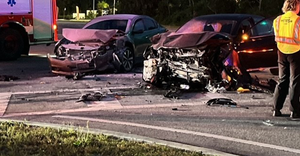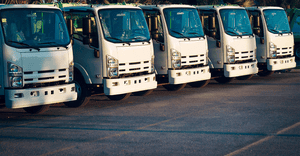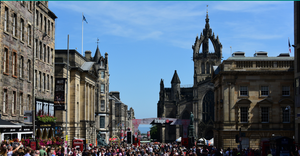NextCycle Accelerator Gives Lift to Circularity Innovators

Jumpstarting a circular economy demands deep investments in new ideas. With that thought, NextCycle was born, an accelerator program intended to help develop a pipeline of projects, ready for and in need of investments, to advance circularity in specific regions.
NextCycle supports innovators dedicated to waste prevention, reuse, recycling/composting, and developing end markets. They receive coaching, technical guidance, and connections to potential funders and partners. Designed and facilitated by consulting firm Resource Recycling Systems (RRS), and led by state and/or local governments, the initiative has supported participants in Colorado, Michigan, and Washington State, and is adapted to each host location based on its goals.
“For a circular economy to be robust and economically sustainable it needs a continuous flow of recycled materials, a viable recycling infrastructure, and accessible end markets,” says Jim Frey, RRS co-founder and CEO.
“By leveraging state funds and accelerating the flow of private and non-profit capital into projects focused on infrastructure, technology, and supply chains, we can help mobilize recycling efforts in NextCycle states.”
For six months participating teams are trained and supported in marketing, finances, engineering, and website development among areas. And they get to pitch their projects to investors.
Glacier, one of Michigan’s earliest participants, leveraged the program to take its robotics and artificial intelligence (AI) technology to the next level, then expanded through NextCycle Washington (NextCycle WA).
In Colorado, Foam Cycle was able to advance its system to collect and densify polystyrene for recycling. These are just two of over 100 NextCycle stories.
In Washington State, 14 teams recently completed the program. Their ideas range from a bio-enzymatic process to break down and recycle polyethylene terephthalate (PET) to a reusable cup network servicing cafes where customers use a mobile app to borrow and return cups.
NextCycle WA has prioritized equity.
“Since the beginning, we have centered frontline communities—the communities who are most impacted by pollution and other environmental harms and who have historically had the least economic power,” says Kara Steward, Washington Department of Ecology Solid Waste Management program. Ecology’s Recycling Development Center was created to focus on market development and joined with King County Solid Waste Division, Seattle Public Utilities, and Washington Department of Commerce to develop the accelerator program in their state.
Public entities, private companies, and community-based organizations were in on the co-design process to build in inclusion and equity, inviting members of overburdened and vulnerable communities to apply.
Community-based mentors helped spread the word about the program. Teams applied from across the state, with the majority of those selected led by women and/or Black Indigenous and People of Color.
Liking the accelerator to a training camp for business/project ideas, Steward says teams can ask professionals for assistance in workshops and through one-on-one consultation that they would have otherwise had to pay for. And they’re on a six-month timeline to the pitch event that holds them accountable to make progress.
Accelerator participant Restaurant 2 Garden is a local, community composting organization based in Seattle’s Chinatown International District (CID), aiming to help Washington State reach its goal to reduce landfilled food waste by 75% by 2030.
Born and raised in Hong Kong, Joycelyn Chui, Restaurant 2 Garden co-founder, used to be a Seattle Public Utilities contractor, helping CID restaurant owners navigate city-mandated waste management programs before she launched the compost project.
Volunteers collect food scraps from restaurants in buckets then walk up a block to a small in-vessel hot composter that makes a nutrient-rich product that’s donated to elderly Asian American gardeners.
Seattle's curbside collection services would be the restaurants' default option to dispose of their food waste. But the city's system hasn't worked for the CID.
The complexity and pricing of the curbside program was one barrier, as was the high number of restaurants and quick turnover rate, making waste sorting difficult.
“Even though Seattle is great about educating their citizens about sorting, their recent waste characterization study shows that one-third of garbage is food scraps, i.e., compostables. So clearly, there's a gap,” Chui says.
“Bringing a tangible and observable site to the area will be a way to demonstrate what happens to our food scraps after they are tossed into the green bin to challenge the pervasiveness of ‘out of sight, out of mind,’” she says.
Getting off the ground was not easy. When she and her small team started, decentralizing food scraps management was only a concept. Roping in investment was especially difficult.
With their non-profit experience, they naturally gravitated toward pursuing grants as a main funding stream. Through the accelerator they gained new perspective.
“During the pitch practice, one of the panel judges said our math will not work out. It was almost like a wake-up call for us to rethink how to strategize our income streams in order to stay afloat,” she says.
By now Chui and partners have completed a business plan and identified a small piece of land where their planned expanded site could potentially move.
They are focusing on building a demo site in the CID.
“It's like a "proof of concept" that community composting in a densely populated area can work. Once we get that going, we hope to replicate this concept in other places,” Chui says.
Washington accelerator participant Refugee Artisan Initiative is a nonprofit that creates jobs for refugees and immigrants who use their handcrafting skills while diverting textile waste from landfill. Thirty women from six countries have made over 120,000 items and saved over 40,000 pounds of materials from disposal.
“Refugee women have the highest unemployment rate at 60%. Sewing is a universal language many of the women already possess coming to America. Why not put them to work with their sewing skills while diverting unwanted waste out of the landfill,” says Ming-Ming Tung-Edelman, executive director Refugee Artisan Initiative.
Now the nonprofit is working on upcycling decommissioned fire hoses and used coffee bags and hopes to continue expanding both materials it salvages and the team who does the work, with a goal of employing 100 women in the next three years.
About the Author(s)
You May Also Like




